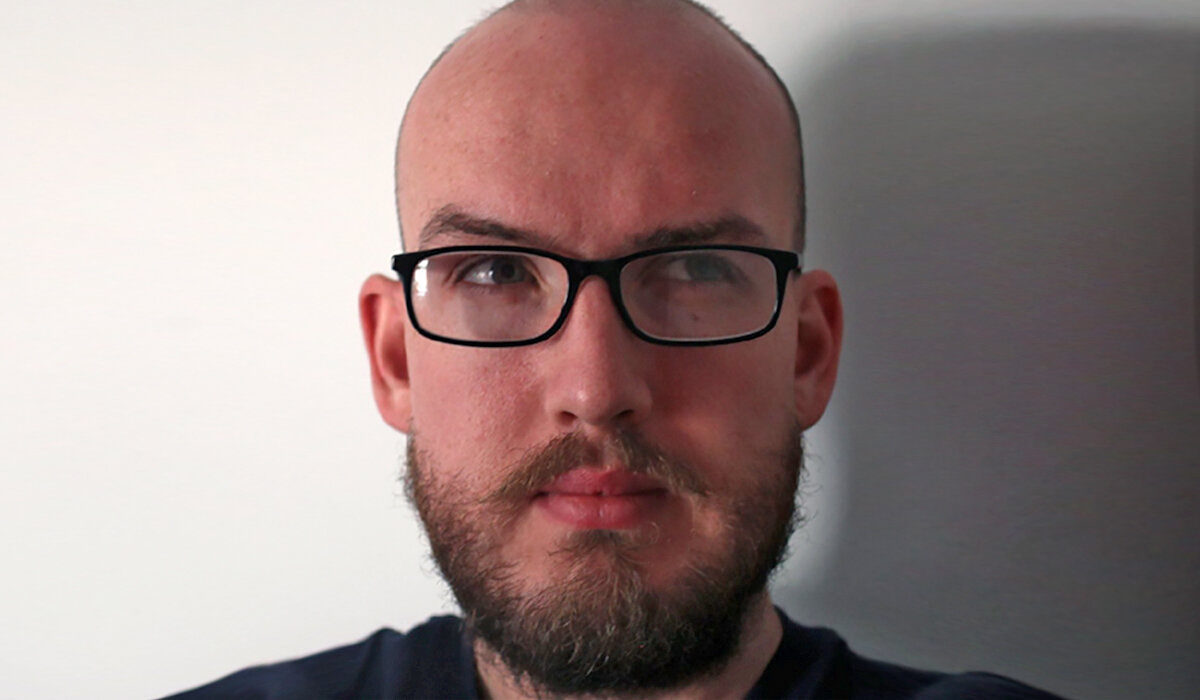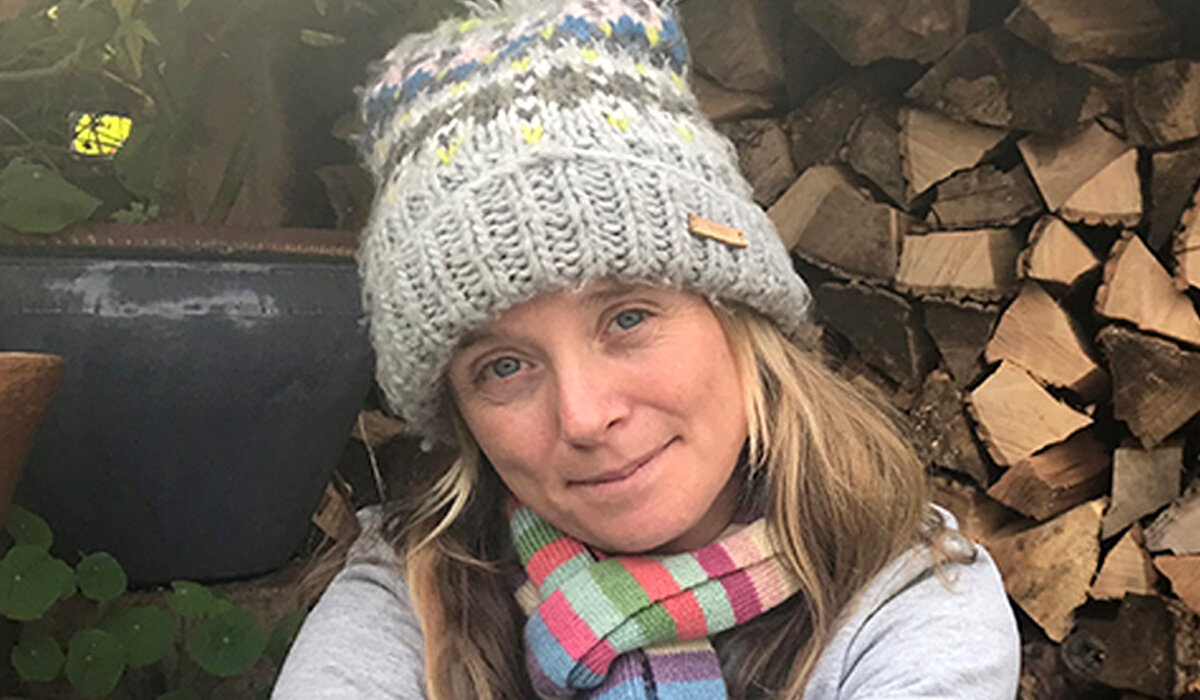
"Tell whatever stories you feel passionate about, in any way you want."
John Clark
- on making films
Stories from the Spectrum: John Clark
We go behind the scenes with autistic filmmaker, John Clark. John uses his creative talent to capture his experience of life on the spectrum. He was shortlisted as a finalist at the 2017 Autism Uncut Festival, for his short film, I have Asperger’s: And what of it?
We talk to John about his autism diagnosis, life behind the camera lens, and why being autistic can sometimes feel like a scene from Incredibles 2…
When were you first diagnosed as autistic and what made you seek a diagnosis?
I was diagnosed when I was four. My parents raised initial concerns about my behaviour and speech. I was then assessed by an educational psychologist at pre-school. They helped refer me to a speech therapist, who then diagnosed me with Asperger syndrome. From there, my mother undertook extensive research, and I am indebted to her for her love, support and understanding.
What is being autistic like for you?
To me, it can often physically feel the same as when you’re adjusting to a new pair of glasses - that sense of vertigo and unease. My permanent tinnitus can be positive as it acts as a calming measure to help me sleep.
Perhaps the best way I can describe my sensory processing is through a scene in Incredibles 2, where a train rushes past full of passengers, and if you slow it down, you are able to see in great detail each and every person inside the carriage. My brain tends to focus on every minute detail in great detail. In stressful situations, things often appear faster and can become more overwhelming, the more distressed I become.
I can also struggle with overanalysing past and present thoughts, as well as certain tasks and activities.
Among all of this, I just seem to see and think about people and the world in a different way. For instance, I am both confused and fascinated by idioms. It’s part of who I am. I used to be very self-conscious about people liking and accepting me, but now, I just think, “take me or leave me”. We’re all different. Some people seem to find ‘live and let live’ a difficult mantra to grasp though.
I tend to get by with learnt coping mechanisms. For instance, if I'm at home and I find myself distressed or anxious, I will distract myself with household chores, or similar work to help calm me down. If I'm out and about and I’m feeling distressed, I have a fidget cube I use or I apply discreet stimming techniques - repeatedly tapping my fingers on my thumb, or lightly drumming with my fingers (I've played drums since I was 15!). Depending on each situation, I always try and project my mind to a place of comfort, repeating to myself "It won't be forever". These strategies are important to me, but there is also no shame in asking for advice or seeking support.
When did you first start making films and what inspires you?
My love of films started at a young age, but I didn’t realise it was something I wanted to do more than anything else until my last year at secondary school. During this time, I started writing and making short films and stories, something that I carried through with me into college and university.
Learning to talk and to understand social etiquette has shaped my fascination with people. I love exploring what makes each person tick, why they live the life they do, and how they make choices in the society and world around them.
In more recent times, I’m inspired by how each person reacts to their inner conflict - be it their mental health, or other conditions that cannot be physically seen (like autism), that are often scrutinised, stigmatised and stereotyped. It’s interesting how some choose to sweep perceived obstacles and problems under the carpet. Perhaps they hope that these perceived problems will go away on their own. This is, perhaps, due in part to angst fed by societal perception, or a fear of facing their troubles head on.
Do you think being autistic has an impact on your approach to film?
Absolutely. Films and filmmaking have always been things I’ve found very difficult to switch off! TV shows too! Whatever I’m watching, I’ll sit and mentally analyse as the film or show plays - the dialogue, the characters, the structure of the story, all the little details. All of this moulds my approach towards writing and directing stories of my own. This narrow, honed-in focus is definitely beneficial when it comes to working on each project.
Are there any particular film-makers or directors who you really admire?
I enjoy most films, but in time I have come to really admire the work of Danny Boyle, Shane Meadows, Paddy Considine, Mike Leigh, Charlie Kaufman, and Andrea Arnold, to name a few!
Your short film I have Asperger's: And what of it? is amazing! Could you tell us a bit about it?
Thank you very much! During adolescence, I seldom disclosed my Asperger syndrome diagnosis to anyone, following extensive bullying at secondary school. It took like-minded and more accepting people during college and university for me to come out of my shell, and be more open about how/why I am the way I am.
After university, I had noticed the steady increase in the portrayal of autism in film and television (for better and for worse!). I decided to pluck up the courage to chime in my own personal experiences through filmmaking, which I studied at the time. I did this in the hopes that my experiences would resonate, enlighten and give insight to others in a similar situation. This was achieved through a 20-minute short introspective documentary called I Have Asperger’s: So What?, which I then edited down to the four-minute Asperger’s: And What Of It? to qualify for the National Autistic Society’s Autism Uncut Film Festival.
I started the process by writing a voiceover which would drive the story. I then began compiling videos, music, and pictures of myself. Through sound and imagery, I attempted to recreate how I perceive a sensory overload.
What advice would you give to aspiring autistic film-makers?
- Tell whatever stories you feel most passionate about, in any way you want. Find a way to channel and project your vision, either for others to see, or simply just for the fun of it!
- Don't let any criticism ever deter you (be it from yourself or others), and don’t burn yourself out too much if the dreaded writer’s block visits. Through trial and error, you’ll find your voice and writing style that, chances are, others will want to hear, and a vision that others will want to see.
I know from past experiences how easy it is to give up, but patience and perseverance is paramount, much like with any aspirational career choice.

"Tell whatever stories you feel most passionate about, in any way you want."
How are you coping with the lockdown? Do you have any tips for people who may be struggling?
To begin with, it was difficult adapting to home-schooling my daughter, and a struggle being unable to visit my family more regularly. My partner and I are finding a relaxed, steadily-paced day more constructive than a tight, strict schedule, and we’ve been receiving some fantastic support from my daughter’s school.
I’ve learnt from being a father that not everything always runs according to plan! This can still throw me off from time to time. However, my daughter seems to be happy with the learning that happens little and often.
Shopping has been the most difficult part of the lockdown for me. We’ve always used online shopping, as I find shopping in supermarkets difficult. But of course, due to lockdown, online shopping has proven to be trickier. For about eight weeks, I’ve had to grin and bear the shopping trips outside as my partner has been unable to go herself. Thankfully, as those weeks have passed, so has the hysterical bulk-buying. Out of the lack of routine as of late, we’ve found ways to work out when to routinely book delivery slots and not lose out again.
For anyone who has been struggling with any aspects of this lockdown, there’s a plethora of resources online to help with day to day struggles, and (though easier said than done), try and limit how much news you read, watch or hear. This is an unprecedented time. Attempting to process all the thick and fast and seemingly contradicting information, can often be engulfing and upsetting. In time, I’m sure this will pass.
Watch I have Asperger's: And what of it?
Similar stories

"Don't feel like you have to hide your autism from your children. That way they know what's going on and they don't worry about it."
Purple Ella
- on parenting and discussing autism with her children
Read more

The Spectrum magazine
Explore one of the UK's largest collections of autistic art, poetry, and prose. The Spectrum magazine is created by and for autistic people, and is available both online and in print.
Read the Spectrum





You are not alone
Join the community
Our online community is a place for autistic people and their families to meet like-minded people and share their experiences.
Join today